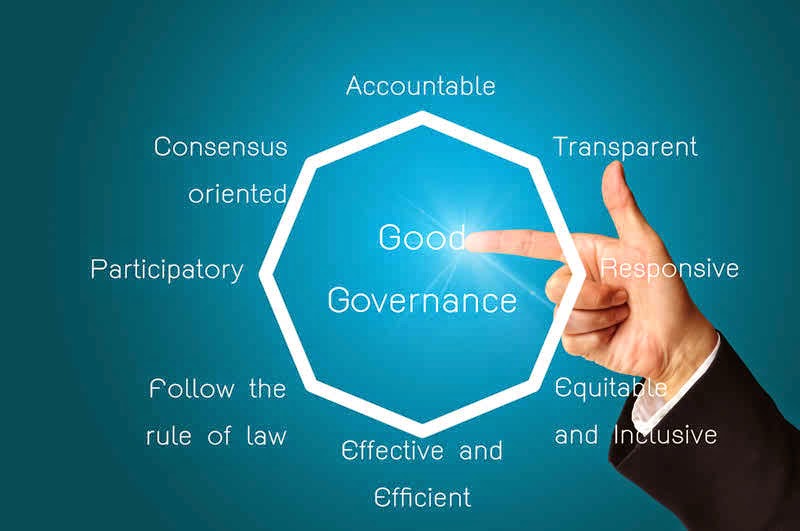Why 6 Massachusetts cities are suing over garbage crisis – Rolling Out

Municipal Waste Management Crisis in Massachusetts: An SDG Perspective
Impact on SDG 11: Sustainable Cities and Communities
A labor dispute involving Republic Services and the Teamsters Local 25 union has resulted in a significant sanitation crisis across six Massachusetts communities, directly undermining the objectives of SDG 11. The failure to manage municipal waste has compromised the environmental sustainability and inclusivity of affected urban areas, in direct opposition to Target 11.6, which calls for reducing the adverse per capita environmental impact of cities through effective waste management.
- Neighborhoods have been transformed into unsanitary zones due to large-scale accumulation of uncollected garbage.
- The crisis is characterized by overflowing bins and scattered debris, degrading public spaces and infrastructure.
- Republic Services’ failure to provide adequate replacement workers has led to a complete breakdown in the essential service of waste collection, revealing vulnerabilities in urban infrastructure.
Threats to SDG 3: Good Health and Well-being & SDG 6: Clean Water and Sanitation
The prolonged lack of waste collection poses a direct and escalating threat to public health and sanitation, key tenets of SDG 3 and SDG 6. The situation has created a public health emergency, with significant risks to community well-being.
- Proliferation of Pests: Rotting garbage has created ideal breeding conditions for rodents and insects, increasing the risk of disease transmission.
- Bacterial Contamination: Decomposing organic waste generates harmful bacteria and noxious odors, which are exacerbated by summer heat and compromise air quality.
- Risks to Vulnerable Groups: Children face heightened risks from playing near scattered trash that may contain hazardous materials, sharp objects, or spoiled food.
- Failure of Sanitation Services: The inability to manage solid waste represents a critical failure in the provision of basic sanitation services essential for healthy urban living.
Challenges to SDG 8: Decent Work and Economic Growth
The crisis highlights multifaceted challenges related to SDG 8, encompassing both the rights of workers and the economic stability of municipalities.
- Labor Rights and Decent Work: The strike is centered on demands for increased wages for sanitation workers, underscoring the ongoing struggle for fair compensation and decent working conditions in physically demanding, essential service sectors.
- Municipal Financial Strain: Affected communities face unexpected budgetary pressures from redirecting public works employees to perform emergency trash collection, resulting in substantial overtime costs.
- Economic Disruption: The diversion of municipal resources to sanitation has forced delays in other essential services, including road repairs and infrastructure maintenance, thereby impeding local economic productivity and development.
Institutional Response and SDG 16: Peace, Justice and Strong Institutions
The response to the crisis tests the effectiveness of local institutions in upholding justice, ensuring public safety, and managing conflict, which are central to SDG 16.
- Legal Action for Accountability: Municipalities have initiated legal action in Essex County Superior Court, seeking to compel Republic Services to fulfill its contractual obligations and restore services. This demonstrates the use of legal institutions to protect public welfare.
- Balancing Interests: The legal strategy attempts to enforce service contracts without taking a position in the labor dispute, highlighting the challenge for institutions to balance public health imperatives with the rights of collective bargaining.
- Community and Institutional Resilience: The crisis has revealed both the fragility of essential service contracts and the resilience of communities, where residents and volunteer groups have organized informal cleanup efforts. The situation serves as a critical test of local government capacity for emergency management and conflict resolution.
Analysis of Sustainable Development Goals in the Article
1. Which SDGs are addressed or connected to the issues highlighted in the article?
The article discusses a municipal crisis stemming from a garbage collection strike, which connects to several Sustainable Development Goals (SDGs) focused on health, urban living, labor rights, and governance.
- SDG 3: Good Health and Well-being: The article directly addresses this goal by highlighting the “potential health hazards” and “serious public health concerns” arising from uncollected garbage.
- SDG 8: Decent Work and Economic Growth: The root of the crisis is a “labor dispute” over wages and working conditions for garbage collectors, which relates to the principles of decent work and fair compensation.
- SDG 11: Sustainable Cities and Communities: The core issue is the breakdown of an essential municipal service—waste management—which is fundamental to creating sustainable and livable urban environments.
- SDG 16: Peace, Justice and Strong Institutions: The article describes the response of local governments (“strong institutions”) using legal action to enforce contracts and protect public welfare, demonstrating governance in action during a crisis.
2. What specific targets under those SDGs can be identified based on the article’s content?
Based on the specific problems described, the following targets are most relevant:
- Target 11.6: By 2030, reduce the adverse per capita environmental impact of cities, including by paying special attention to air quality and municipal and other waste management.
- Explanation: The entire article is about a failure in municipal waste management. Phrases like “mounting piles of uncollected trash,” “overflowing bins,” and the failure to provide “basic sanitation services” directly relate to this target.
- Target 3.9: By 2030, substantially reduce the number of deaths and illnesses from hazardous chemicals and air, water and soil pollution and contamination.
- Explanation: The article states that “decomposing organic waste generates harmful bacteria and attracts disease-carrying pests,” creating pollution that threatens community health. The “stench of rotting garbage” also points to air contamination.
- Target 8.8: Protect labour rights and promote safe and secure working environments for all workers…
- Explanation: The strike is driven by union demands for better compensation, reflecting the “physically demanding work conditions” and “exposure to hazardous materials” faced by garbage collectors. This target addresses the need for safe and fairly compensated work.
- Target 16.6: Develop effective, accountable and transparent institutions at all levels.
- Explanation: The crisis tests “local government capabilities.” Municipalities are taking “drastic legal action” against Republic Services for failing to “fulfill its contractual obligations,” which is an attempt by public institutions to enforce accountability and restore essential services.
3. Are there any indicators mentioned or implied in the article that can be used to measure progress towards the identified targets?
The article implies several indicators that could be used to measure the severity of the crisis and, conversely, the progress toward resolving it:
- Indicator for Target 11.6 (Waste Management): The proportion of municipal solid waste that is collected. The article describes a near-total failure in this area, with “uncollected trash” and crews that “fail to complete” their routes. A return to normal would mean a 100% collection rate.
- Indicator for Target 3.9 (Health): The prevalence of health risks associated with poor sanitation. The article points to measurable indicators such as the presence of “rodents and insects” and the “overwhelming stench” that makes outdoor activities “unpleasant or impossible.”
- Indicator for Target 8.8 (Decent Work): The frequency and duration of labor disputes. The article specifies that the labor dispute has been ongoing for “three weeks,” serving as a direct measure of the disruption.
- Indicator for Target 16.6 (Institutional Effectiveness): The financial burden on municipal budgets. The article mentions “unexpected budget strains,” “substantial overtime costs,” and “additional costs” for fuel and disposal. These unplanned expenditures serve as a quantifiable indicator of the impact of the service failure on public institutions.
4. Table of SDGs, Targets, and Indicators
| SDGs | Targets | Indicators Identified in the Article |
|---|---|---|
| SDG 11: Sustainable Cities and Communities | 11.6: Reduce the adverse environmental impact of cities, including through municipal and other waste management. | Proportion of municipal waste collected (indicated by “uncollected trash” and incomplete routes). |
| SDG 3: Good Health and Well-being | 3.9: Substantially reduce illnesses from pollution and contamination. | Presence of disease vectors (“rodents and insects”); Level of air pollution from odors (“overwhelming stench”). |
| SDG 8: Decent Work and Economic Growth | 8.8: Protect labour rights and promote safe and secure working environments. | Duration of labor disputes (mentioned as “three weeks”); Existence of demands related to working conditions (“exposure to hazardous materials”). |
| SDG 16: Peace, Justice and Strong Institutions | 16.6: Develop effective, accountable and transparent institutions. | Additional municipal expenditure due to service failure (“substantial overtime costs,” “unexpected budget strains”). |
Source: rollingout.com

What is Your Reaction?
 Like
0
Like
0
 Dislike
0
Dislike
0
 Love
0
Love
0
 Funny
0
Funny
0
 Angry
0
Angry
0
 Sad
0
Sad
0
 Wow
0
Wow
0













































































